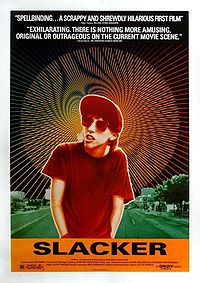
Image by Mr. Fix It
Some time back I wrote this essay. Many references within are Blue-Heron-Land specific, but you should get the picture.
Since writing this, I have shopped for and bought a new mattress. I correctly guessed, just by being in the store, which chain featured the annoying jingle cited below. The sales people were car-salesman pushy, and their shell-game pricing made my skin crawl. To answer their jingle’s question: you lost me from hello.
Adverse-tising
“Why buy a mattress anywhere else?”
When that insipid ditty from a TV commercial popped into my brain last week in the middle of grocery shopping, my first reaction after annoyance was one of gleeful spite. Despite the effectiveness of the jingle writer to get the irritating tune stuck in my head, I couldn’t for the life of me tell you the name of the furniture store that paid good money for the ad campaign. But then I realized that without knowing the name of the furniture company, I might accidentally buy a mattress from them. I could inadvertently contribute to the greater banality of society.
Like any good contrarian, I try my best to vote with my dollars. No purchase is made without a very involved and contorted balancing of values — of both the conscience and pocketbook variety. I’m always on the look out for an organic, shade-grown, cruelty-free, quality-made widget from a local, family-owned, environmentally-sound, fair-labor company with no ties, historic or otherwise, to Nazis, apartheid, third-world baby-killing, or Bill Sizemore, all at one low price-point.
Into that convoluted calculus throw in my desire to punish over-reaching advertising. My instincts tend to view advertising suspiciously — corporate America trying to manipulate me into a consumption choice based on something less than meritocracy. So, when the spirit moves me, I swing my quixotic lance at products and services backed with gargantuan advertising budgets and I even carry delusions that my shopping choices subvert the dominant paradigm.
But I carry a deeper vigilance against advertising that annoys me, regardless of the deep pockets of its origin. When I drive near a video billboard I place my hand over the windshield to erase the eyesore from my landscape. Advertisers on those intrusive public TVs should be thankful that I refuse to look into the eyes of Big Brother, for if I knew who was footing the bill for those things they’d make the not-in-my-lifetime list. But, then again, casinos aren’t my cup of change anyway. (Obviously, I must have peeked.)
With conventional billboards I usually avert my eyes as if they were Medusa.
Murals pose a tougher call. I kind of like the Thomason cherubs at the downtown end of the Morrison Bridge and I miss waiving to the six-story Altoids devil-woman that used to watch over my commute down I-5. So I won’t reject mural advertising out of hand, but my personal opinion and spending habits are not subject to the First Amendment or Oregon’s Constitution and I reserve the right to discriminate based on content.
For content is the basis for much of my discrimination in the omnipresent ads. Radio, TV, pop-up browser windows, movie previews, urinal stalls. It’s an advertiser’s world and we just live in it. But their products start acquiring backlash points quickly. Insipid tunes, bad acting, manipulative statistics, intrusiveness, stupid writing, crashes to my browser — just remember, I’m taking notes.
When advertising misses its intended goal to get me to buy a product and instead produces in me a conscious backlash, I refer to it as adverse-tising. “They’ll rue the day they adverse-tized that commercial around me,” I’ll say. And when I stand before the grocery I’ll enter it into my mental consumer calculator. Now, if only I could remember which brand of beer has those obnoxious twins.
Though I’d like to think differently, advertisers are on to people like me. I’m just a factor in a calculus of their own. If the ad brings in more buyers than it turns away, it’s a success. Advertisers have always been wary of creating adverse reactions through their advertisements. That type of mentality led to TV shows where Gilligan and the Skipper had a more intimate sleeping arrangement than Mr. and Mrs. Howell. My reaction isn’t any sort of William Bennett American values crusade. Mostly, I just want ads to leave me alone, though I wouldn’t mind better copy.
When I was a teenager I read some statistic that a certain percentage of viewers will find any particular TV commercial offensive. That stat included a base percentage of viewers who find all commercials offensive. Back then I wondered how anyone could be so cynical. Now I wonder how I got to be like that. After a lifetime of advertising, is it any wonder?
 Road Traveled Remorse
Road Traveled Remorse Memory is trapped in the olfactory — smell and taste — locked away as intense nostalgia ready to explode its vividness upon accidental disinterment.
Memory is trapped in the olfactory — smell and taste — locked away as intense nostalgia ready to explode its vividness upon accidental disinterment.
